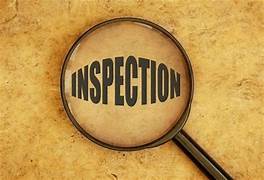Property inspections play a vital role in maintaining the condition of rental properties and ensuring a positive landlord-tenant relationship. Whether you’re a landlord or a tenant, understanding the different types of property inspections, their purposes, and your respective responsibilities can lead to a smoother rental experience. In this blog, we’ll provide a comprehensive guide to property inspections, along with the added benefit of NG Property Management providing all these inspections under one roof. This helps both landlords and tenants navigate this essential aspect of property management.
1. Move-In Inspections:
For Landlords:
Conduct a move-in inspection before a new tenant moves in. Document the property’s condition, including any existing damages, with photos and written notes. Provide a copy of the inspection report to the tenant.
For Tenants:
Carefully review the move-in inspection report provided by the landlord. If you notice any discrepancies or unreported damages, communicate them to the landlord in writing.
2. Routine Inspections:
For Landlords:
Regularly scheduled routine inspections, usually every six months, help you assess the property’s condition and identify any maintenance or repair needs. Provide tenants with proper notice and communicate the purpose of the inspection.
For Tenants:
Cooperate with routine inspections, ensuring access for the landlord or property manager. This is an opportunity to address any concerns you may have about the property’s condition.
3. Healthy Homes Inspections:
For Landlords:
Ensure your property meets the healthy homes standards as required by New Zealand law. Inspections check for heating, insulation, ventilation, moisture, drainage, and draught stopping.
For Tenants:
It’s also good for tenants to understand whether the property they’re considering renting complies with healthy homes standards. Ask landlords about the property’s compliance and what measures have been taken to meet these standards.
4. Routine Maintenance Checks:
For Landlords:
Regular maintenance checks ensure that the property is well-maintained and that any repairs are addressed promptly. This contributes to tenant satisfaction and property longevity.
For Tenants:
Notify your landlord promptly if you notice any maintenance issues that require attention. Timely communication can prevent minor issues from escalating into major problems.
5. Move-Out Inspections:
For Landlords:
Conduct a move-out inspection when a tenant vacates the property. Compare the property’s condition to the move-in inspection report. Deduct any damages beyond normal wear and tear from the bond.
For Tenants:
During the move-out inspection, ensure the property is clean and in a condition similar to when you moved in. Address any damages or issues you’re responsible for before the inspection.
6. Pre-Purchase Building Inspections:
For Property Buyers
If you’re planning to sell your property, a pre-sale building inspection can help you identify and address any issues that might affect the property’s sale price.
7. Pre-Sale Building Inspections:
For Property Sellers
If you’re purchasing a new property, consider investing in a pre-purchase building inspection. This helps you identify any potential issues before finalizing the purchase.
Conclusion:
Property inspections are a crucial part of maintaining rental properties and ensuring a harmonious landlord-tenant relationship. Both landlords and tenants should be aware of their responsibilities during different types of inspections. Open communication, proper documentation, and adherence to legal requirements contribute to a transparent and positive inspection process, benefiting all parties involved in the rental agreement. NG Property Management offers the added convenience of providing all these inspections, helping landlords and tenants navigate the process with confidence. Additionally, tenants can also benefit from understanding whether the property complies with healthy homes standards before making a renting decision.



